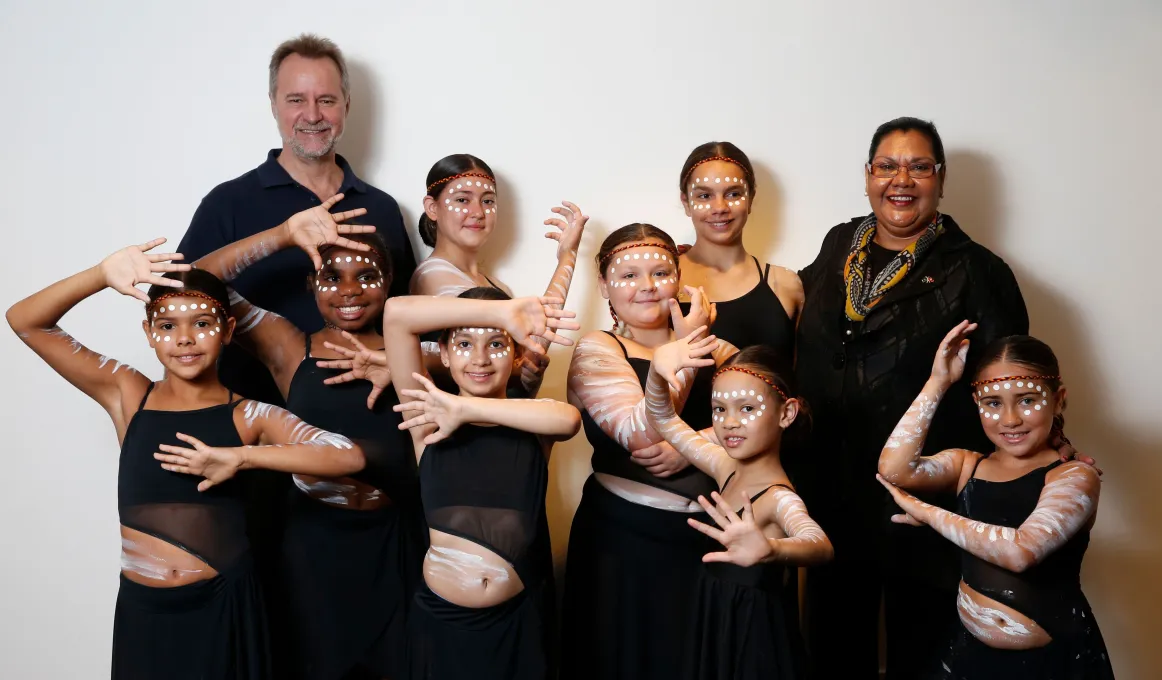June Oscar AO – Giving a voice to women and girls

Aboriginal and Torres Strait Islander Social Justice Commissioner, June Oscar AO will lead the ‘Wiyi Yani U Thangani’ (Women’s Voices) project consulting with Aboriginal and Torres Strait Islander women and girls on issues that affect them, their communities and their futures.
The first female Aboriginal and Torres Strait Islander Social Justice Commissioner, June Oscar AO, will spend 2018 travelling Australia. She will lead the ‘Wiyi Yani U Thangani’ (Women’s Voices) project, an Australian Government initiative.
The Social Justice Commissioner spoke to an audience at the launch of the project in Sydney on 1 December.
‘To my sisters right across the country, today I launch Wiyi Yani U Thangani for you,’ June said.
‘In the spirit of self-determination and a human rights based approach, this initiative will hear and honour your voices. It will be shaped by you. I look forward to meeting with you, to sitting down with you and talking with you about your challenges and your aspirations for the future.’
The Social Justice Commissioner and her team will conduct face-to-face consultations in major cities as well as many regional and remote locations.
The project will inform government policy into the future, ensuring the rights and security of generations to come.
‘There are significant opportunities to grasp here, to ensure that our women are not just a footnote or an add-on for the latest policy or program, but that our needs and aspirations and our voices are at the forefront of the governments agenda – beyond the narrow frame of victimhood and dysfunction,’ June said.
The project will build on the 1986 Women’s Business report that expressed the concerns of Aboriginal and Torres Strait Islander women about their families, communities and the future.
The report taskforce headed by two Aboriginal women, Phyllis Daylight and Mary Johnstone noted the deep distress and sense of powerlessness the women felt about what was happening to their people.
But what struck the task force most was the significance of the roles these women played. They were the nurturers, teachers, and protectors; the carriers of story and identity. In the midst of deep trauma, their courage and resourcefulness was literally keeping their communities alive.
In giving a greater voice to Aboriginal and Torres Strait Islander women and girls, the 2018 project hopes that they, like their mothers and grandmothers before them, can be the powerhouses and change-makers in their communities.
‘I encourage you all to participate in the community meetings and our submissions process, which will open shortly. I will not get to every community, but I will strive to hear from as many of you as possible through this process. Together we will raise our voices as Aboriginal and Torres Strait Islander women and girls and together we will deliver a message to government that demands to be heard,’ the Social Justice Commissioner said.
Find out more
Wiyi Yani U Thangani (Women’s Voices), comes from the Bunuba language from around Fitzroy Crossing, the language of Commissioner Oscar’s mother and grandmother.
For further details on the program and consultation process, visit the consultations page or the Australian Human Rights Commission website.